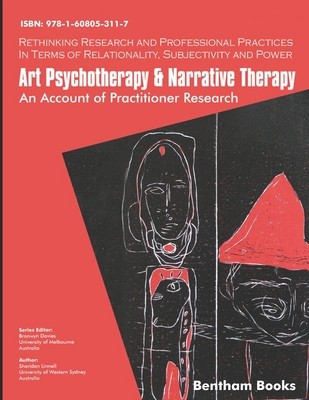
- We will send in 10–14 business days.
- Publisher: Bentham Science Publishers
- ISBN-10: 1608053113
- ISBN-13: 9781608053117
- Format: 21.6 x 27.9 x 1.7 cm, softcover
- Language: English
- SAVE -10% with code: EXTRA
Art Psychotherapy and Narrative Therapy (e-book) (used book) | bookbook.eu
Reviews
Description
This book is a personal, political and philosophical exploration of doing both therapy and research: an enquiry into how the process of therapy shapes the therapist as well as the client, and how the researcher is shaped by her research. A guiding theme is the proposal, following Foucault and Nikolas Rose, that psychotherapy is constituted, through forms of modern power, as a crucial contemporary site of both governance and resistance. As well as giving an account of the author's clinical and research practices as an art psychotherapist and narrative therapist, the book offers a highly readable introduction to poststructural theory and innovative social sciences methodologies, while expanding the understanding and practice of these theories and methodologies. The book embodies and performs what it describes, engaging readers far more strongly in complex theoretical material than is possible in an expository text. The poststructural, autoethnographic approach taken in this book is unique in the field of the arts therapies.
EXTRA 10 % discount with code: EXTRA
The promotion ends in 20d.22:08:26
The discount code is valid when purchasing from 10 €. Discounts do not stack.
- Publisher: Bentham Science Publishers
- ISBN-10: 1608053113
- ISBN-13: 9781608053117
- Format: 21.6 x 27.9 x 1.7 cm, softcover
- Language: English English
This book is a personal, political and philosophical exploration of doing both therapy and research: an enquiry into how the process of therapy shapes the therapist as well as the client, and how the researcher is shaped by her research. A guiding theme is the proposal, following Foucault and Nikolas Rose, that psychotherapy is constituted, through forms of modern power, as a crucial contemporary site of both governance and resistance. As well as giving an account of the author's clinical and research practices as an art psychotherapist and narrative therapist, the book offers a highly readable introduction to poststructural theory and innovative social sciences methodologies, while expanding the understanding and practice of these theories and methodologies. The book embodies and performs what it describes, engaging readers far more strongly in complex theoretical material than is possible in an expository text. The poststructural, autoethnographic approach taken in this book is unique in the field of the arts therapies.


Reviews